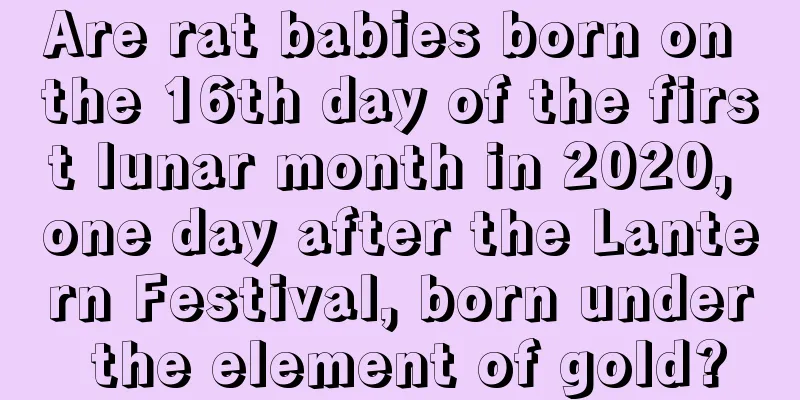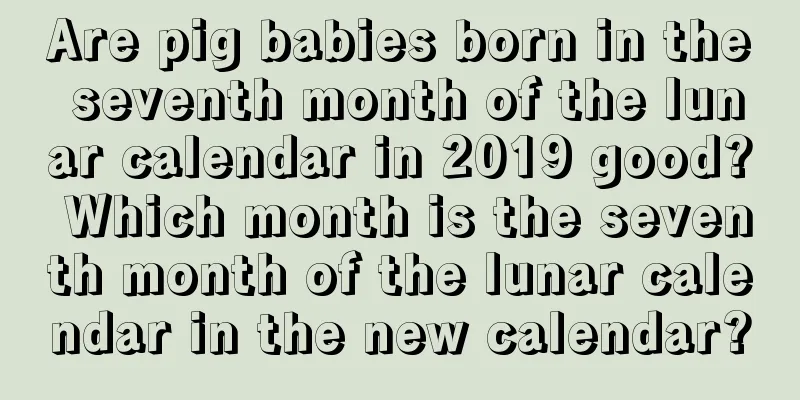The 20th day of the first lunar month is the Bu Tian Festival? Any comment?

Introduction: China is an ancient civilization with a profound history. It is also a multi-ethnic country, so it has many folk cultural festivals. The first month of the lunar calendar is the first month of the Spring Festival, so there are many folk festivals there. So, the 20th day of the first lunar month is the Bu Tian Festival? Any comment? In addition to the grand and festive celebrations of the Spring Festival, we also need to pay attention to some taboos regarding the Spring Festival. Next, let’s take a closer look at the Spring Festival special topic compiled by Mr. Shui Mo!What day is the 20th day of the first lunar month?Tianchuan Festival, a traditional Chinese festival. The festival time varies slightly from place to place, and may fall on the 7th, 19th, 20th or 23rd day of the first lunar month. As a festival for the Chinese people to commemorate Nuwa's rescue of mankind from repairing the sky, it is also a festival for ancient people to hope for good weather, flourishing of all things, good harvest, and peace and happiness. Among China's folk festivals, this is the only one in which housewives take the lead in offering sacrifices, reflecting the importance of women in family life in ancient times.The 20th day of the first lunar month is the Bu Tian Festival. What is the legend about it?The Tianbu Festival in GuanzhongThere is an ancient Chinese traditional festival in the Guanzhong region called the Butian Festival, which is also called the Queen's Day and the Wa Po Festival. According to legends and local relics, this festival originated in the Lishan area of Lintong.The Patching Sky Festival falls on the 20th day of the first lunar month in some places and on the 23rd day of the first lunar month in other places. It is said that the former is Nuwa's birthday, and the latter is the day when Nuwa patched the sky. On the day of the festival, the elders and housewives make pancakes or steamed cakes with dough. The cakes are required to be round and thin, and are called "Bu Tian Bing". The ceremony of mending the sky and the earth is very simple. A sky-patching cake is tied with red silk thread and thrown onto the roof of one's house to symbolize mending the sky. Another piece of cake is broken off and thrown into the well or corner of the yard to symbolize mending the earth. After the ceremony, the whole family eats the Bu Tian Cake. Today, the rocks behind the Shiweng Temple on Dongxiuling Mountain in Mount Li are still red. According to Chinese folk legend, they were burned red by Nuwa of Mount Li who refined the five-colored stones. The rural areas around Mount Li celebrate the "Paying the Sky and Repairing the Earth Festival" on the 20th day of the first lunar month every year. Every family makes pancakes or steamed cakes, and before the pancakes are cooked, they throw one onto the roof of the house, which is called "Paying the Sky"; and throw another one on the ground, which is called "Paying the Earth". These are all ways to commemorate Nuwa, allowing people to forever remember Nuwa's merits in saving the world. The Huaqing Hot Springs at the foot of Mount Li are famous both at home and abroad. Why are there hot springs here? Chinese folk legend goes like this: When Nuwa smelted the five-colored stones, the flames illuminated the sky red and illuminated the earth. The fire was absorbed by the sun god, and the sun began to emit dazzling light again, shining on the world all year round; the heat was absorbed by the water under Mount Li, and the water turned into hot springs that flow all year round. This hot spring became magical because of Nuwa's magic power, and it has the effect of warding off evil spirits, removing poisons, eliminating disasters and curing diseases. For thousands of years, Mount Li's hot springs have been well-known and attract many visitors. Nowadays, bathing in hot springs has become a major event for all people. People come here to wash away the dirt on their bodies, get rid of diseases, improve their health and prolong their lives, and they can also cleanse their souls and minds in this place of outstanding people and beautiful scenery. Summary: Through the above article, we know some things about the 20th day of the first lunar month being the Bu Tian Festival. I hope that you can have a certain understanding of the folk culture of other regions. I also hope that you will like it. I wish you all peace, health and good luck in the new year! After reading this article, there are more exciting content in the Spring Festival special topic, let’s take a look! |
<<: Query of the auspicious and unlucky times for the 23rd day of the first lunar month in 2017
>>: What day is the 17th day of the first lunar month and what customs are there?
Recommend
Is New Year’s Day 2019 a suitable time for renovation? Is it a good time to start renovation on New Year’s Day?
Introduction: In our country’s traditional culture...
2018 Lunar April 27th auspicious time, good and bad time query
The Fortune Teller website has carefully compiled...
What is the fate of boys born in September of the lunar calendar in 2020? What are the fortunes of the 12 zodiac signs born in September?
Introduction: Children born in different months ha...
What is the zodiac sign of a child born on the seventh day of the fourth lunar month in 2020? What are the characteristics?
Everyone has his or her own zodiac sign and, of co...
Where is the God of Happiness on the 11th day of the first lunar month in 2019?
Shuimoxiansheng.com provides you with more conten...
Is October 17th of the lunar calendar in the Year of the Rat 2020 suitable for funerals?
Is October 17th of the lunar calendar in the Year ...
Analysis of the tenth day of the fifth lunar month in 2021. Is it a good day to get married?
Marriage is one of the major events in life. There...
Recommended auspicious days for ancestor worship in October of the lunar calendar in 2021
It is also necessary to choose a time to worship a...
Is it good for a girl to be born on October 20th of the lunar calendar in 2018? Personality analysis of Cancer people born in the year of the Dog!
Introduction: Although everyone is born on a diffe...
What are the taboos when the dragon raises its head on February 2? What is the origin of the Dragon Raising its Head?
The Dragon Raising its Head is one of my country&#...
Is the fate of a girl born on the summer solstice on May 19th of the lunar calendar in 2019 good?
On the day of the summer solstice, the position of...
Is the fourth day of the twelfth lunar month in 2020 an auspicious day? Check the lucky position of the God of Happiness on January 16, 2021
Introduction: Every day unfolds differently, so is...
Is the tenth day of the second lunar month in 2021 an auspicious day for travel?
Traveling in the lunar calendar refers to setting ...
Is the 17th day of the first lunar month in 2018 a suitable day for marriage?
The seventeenth day of the first lunar month is th...
Will a girl born on the fifth day of the eighth lunar month in 2020 marry into a wealthy family? Girl's fate analysis
Some people have good fortune, while others have b...









